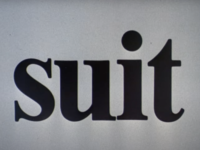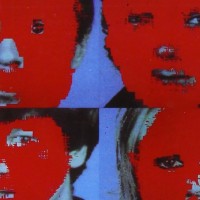The Talking Heads seemed to do what so few manage – start a career almost fully formed, then gradually grow without giving up their signature style. They emerged weird, polished that weirdness, and let the world catch up.
You really have to put your mind back in the 1970s to imagine how different they were: There’s disco here, hard rock and heavy metal over there, and to that other side is punk. And then, right here, tucked away in this little corner, is a found-object quartet of funky art-school nerdiness. They were, really, a tremendous relief.
And, even as we’ve gotten older, the Talking Heads are still making sense …
“CROSSEYED AND PAINLESS,” REMAIN IN LIGHT (1980): First, there’s this cascading rhythm, almost like an avalanche of keyboard scronks, humping bass and sawing psycho-killer guitar. Everything is happening all at once, yet flowing together in a recognizably soulful torrent. It was like some kind of blend of Africana and funk, through the too-thick lenses of t-shirt-wearing group of college nerds. And that’s just what they were. Of course, so were we. It was beautiful.
Everybody remembers the facts-are-this and facts-are-that part – clearly, we see now, a signpost for the easy suburban nihilism of the looming decade – but this was the heart of it: “I feel like an accident,” Byrne hiccuped, echoing the deeper fears a generation. But also, copping to the found-object brilliance of this amalgam. Would’ve made a lot of sense, if we had stopped dancing around long enough to think about it.
I know I didn’t. – Nick DeRiso
“MEMORIES CAN’T WAIT,” FEAR OF MUSIC (1979): I’m going to blame Living Colour. Oh, sure, I was aware of Talking Heads, but prior to Living Colour’s 1988 debut album, they just weren’t really my “thing.” A couple of amusing, intriguing videos that were always in rotation on MTV made sure that everyone was aware of Talking Heads. But with Vivid it became impossible for me to ignore them, because it’s Living Colour’s cover of “Memories Can’t Wait” that woke me up.
I found I wasn’t quite prepared for the “real” Talking Heads. After all, at 15, I’d only heard those radio staples that were really quite fun, and Living Colour’s take on “Memories Can’t Wait” was considerably different than the original. Corey Glover’s vocals veered into soulful territory, with shredding guitar strings over the funky, upbeat. Strange then was Talking Heads’ bleak, stark original, David Byrne talk-singing his way through a landscape of simple, clean guitars and disorientingly skewed effects. In comparison, Living Colour made the song sound like an upbeat love song of some kind. Talking Heads created the sound of a man lost, dazed, confused, and all out of sorts.
I wouldn’t really see the brilliance of the original for quite some time, preferring instead the soulful reading Living Colour offered. Not to dismiss their version, as it is still among my favorites, but its candy coating makes it easier to swallow. Talking Heads is the scary sound of reality, and sometimes it’s just nice to get away from that. But as you get older, it’s harder to deny the power of a band that can portray that in just a few minutes with just a few instruments and one man’s odd voice. – Tom Johnson
“ONCE IN A LIFETIME,” REMAIN IN LIGHT (1980): The Talking Heads biggest non-hit was another genius production job by Brian Eno: a dreamy, keyboard wash that sounds like water flowing underground clashing with a fragmented bass line and a chugging beat. Likewise, Byrne’s nervous spoken verses about looking back at a typical American life and wonder “my God! how did I get here?” contrasted with the sung chorus of blowing off the anxiety and “letting the days go by.”
Eno and Byrne would go on to work together again on other projects, but this song makes clear why the partnership was perfect: the former art-school geek (Byrne) who might be the closest thing to an American David Bowie found in Eno someone who could perfectly channel his artsy ambitions in music, making it sound so modern but never dating itself.
MTV played the heck out of that video but even today I still can’t take my eyes off a hyper-neurotic, sweating Byrne and his spastic dancing. The Talking Heads made a compellingly danceable song that was a little bit deeper and mysterious than your typical funk tune.Too bad that it took a while for people to realize that; it shouldn’t have been a big “non-hit”, but a big “hit” instead. – S. Victor Aaron
[amazon_enhanced asin=”B0012FAS72″ price=”All” background_color=”FFFFFF” link_color=”000000″ text_color=”0000FF” /] [amazon_enhanced asin=”B001248GYK” price=”All” background_color=”FFFFFF” link_color=”000000″ text_color=”0000FF” /] [amazon_enhanced asin=”B00124A1QQ” price=”All” background_color=”FFFFFF” link_color=”000000″ text_color=”0000FF” /]
“I ZIMBRA,” FEAR OF MUSIC (1979): At the age of 17, I knew nothing of funk guitar…or Dadaist poetry…or African pop music. You can add the Talking Heads to that list too. Oh sure, I bet I knew about “Psycho Killer,” but I owned neither of the first two Talking Heads albums.
Maybe the music was too weird for me. Or maybe it wasn’t loud enough. I think I wasn’t yet at the point where “out” was a good thing. What caused me to buy Fear of Music? Was it that I’d just entered college? Was it a review in Creem magazine? Was it the way cool diamond plate pattern embossed on the album’s industrial-looking outer sleeve? Probably a little bit of each.
I do remember that when “I Zimbra” came wiggling out of my speakers, it was pretty obvious that I was onto something completely different. The insistent percussion, Jerry Harrison and Byrne’s scratchy interlocked guitar parts, and those odd, almost tribal vocals — it was all so new and exhilarating to me. And just what was that language they were singing in? The music made me nervous. It also made me want to dance.
It was years later before I went on to investigate Afro-pop, the Dada movement, and all of the other bits of culture that the Talking Heads were smart enough to incorporate into their music. I have to credit them (along with Zappa, Beefheart, and a few others) for making me realize just how vast the world of art is. – Mark Saleski
“SAX AND VIOLINS,” UNTIL THE END OF THE WORLD soundtrack (1991): One of the best songs on what may be the best soundtrack of the 1990s, for Wim Wenders’ “Until the End of the World.” Also featured were Lou Reed, Nick Cave, R.E.M., Depeche Mode, Julee Cruise, U2 and Jane Siberry, among others – and not a bad effort in the bunch. But this track not only represents one of the most confidently, completely funky efforts by the Heads, who never issued another album after 1988’s Naked, it’s also one of the last.
Byrne, Jerry Harrison (with the Casual Gods) and Chris Franz and Tina Weymouth (the Tom Tom Club) were all deep into solo ventures by then, so there was more than a little interest from their biggest fans. The Talking Heads – or some of them, anyway; only Byrne and Harrison appear in the video – didn’t disappoint with a track that combines the best of their avant-garde, pop, R&B, world music and art rock influences.
And even at this late date, with everybody past college and off into the real world, they still find a way to remind you of the long-ago connection made through those old can headphones on a lonely school night, as Byrne sings: “Mom and pop, they will f**k you up – for sure!” – Nick DeRiso
“NEW FEELING,” THE NAME OF THIS BAND IS TALKING HEADS (1977): “The name of this song is ‘New Feeling’ and that’s what it’s about.” So goes the introduction David Byrne gives this song on the live album, The Name Of This Band Is Talking Heads. It’s easy to dismiss this now, but back in the 70s, bands didn’t really sing about random things – they sang about cars, girls, rock-n-roll – you know, songs had some kind of motivating factor. In a way, Talking Heads is kind of an early Seinfeld of rock – a band that sang about nothing. Or “feelings” in this case. “More Songs About Buildings And Food,” maybe, to quote their next album title. Whatever it is, not many were doing what Talking Heads were.
But it wasn’t just Byrne’s bizarrely simple lyrics. Talking Heads’ music, on paper, sounds like a mess – it has a great beat, you can certainly dance to it, but it should be boring because it just goes on and on. There are some seemingly simple guitar motifs, and Byrne’s weird lyrics half-talked, half-sung over top of it. This is not a chart-busting recipe.
And yet when you hear it you can’t help but feel it. It gets to you. It eventually got to everyone. Who didn’t love at least something by Talking Heads? That’s their magic. They seemed to grasp the elements of funk, of disco, of rock, of even primitive rap, that resonated with people, rolled it all together, and boiled it all down into something that was its own thing. And it’s all here in this song – the same elements easily found years later in most other Talking Heads songs are right here in this early example. – Tom Johnson
[amazon_enhanced asin=”B0012FFL6K” price=”All” background_color=”FFFFFF” link_color=”000000″ text_color=”0000FF” /] [amazon_enhanced asin=”B00122PYGK” price=”All” background_color=”FFFFFF” link_color=”000000″ text_color=”0000FF” /] [amazon_enhanced asin=”B001OGRIXQ” price=”All” background_color=”FFFFFF” link_color=”000000″ text_color=”0000FF” /]





Go to More Dark Than Shark at http://www.moredarkthanshark.org for everything about Brian Eno…